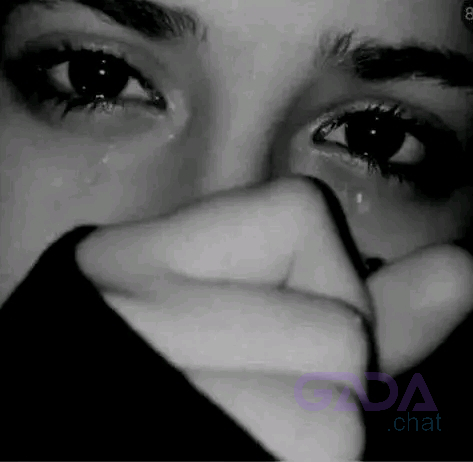As the passengers disembarked one by one, I remained the only person on the bus. The driver turned to face me, inquiring, "Aren't you getting off yet?" I replied, "No, sir, I'm headed to Gwagalada." He responded, "You'll need to take a different bus. Mine has reached its final destination."
My heart skipped a beat as I panicked, thinking, "How will I get there now?" The money I had paid for the trip was all I had, and I couldn't afford another ticket. I pleaded with the driver, "Please, sir, help me. I don't have any more money."
Just as I finished speaking, a male passenger who had disembarked earlier returned to the bus, warning me,
"This is Nasarawa, the last stop on the route from Jala to Abuja. You won't find another bus, and it's raining. You're not familiar with this area, and it's not safe to stay here. Your priority should be finding shelter, not trying to get to Abuja."
He suggested I accompany him, but I was hesitant. Despite our 13-hour conversation, he was still a stranger. He had kindly bought me food and a drink, but I wasn't comfortable going to his house.
"I'll stay on the bus," I said. "I'll find my way in the morning."
But he persisted, his tone turning insistent. "It's not safe," he warned.
"I know," I replied calmly, trying to hide my growing unease.
The friendly demeanor he had shown earlier was gone, replaced by a stern expression. "No, sir!" I shouted, trying to sound braver than I felt.
We were alone; the driver had stepped out of the bus. The man turned around, his face etched with disappointment, and walked away. I was left with an overwhelming sense of fear and loneliness, surrounded by darkness.
The driver returned, slamming the door shut. The passenger seat creaked open, and a stranger slid in, locking the door behind him. The newcomer turned to me, his voice low and mysterious.
"Are you coming from Jalingo?" he asked.
I remained silent, my heart racing with unease.
My heart skipped a beat as I panicked, thinking, "How will I get there now?" The money I had paid for the trip was all I had, and I couldn't afford another ticket. I pleaded with the driver, "Please, sir, help me. I don't have any more money."
Just as I finished speaking, a male passenger who had disembarked earlier returned to the bus, warning me,
"This is Nasarawa, the last stop on the route from Jala to Abuja. You won't find another bus, and it's raining. You're not familiar with this area, and it's not safe to stay here. Your priority should be finding shelter, not trying to get to Abuja."
He suggested I accompany him, but I was hesitant. Despite our 13-hour conversation, he was still a stranger. He had kindly bought me food and a drink, but I wasn't comfortable going to his house.
"I'll stay on the bus," I said. "I'll find my way in the morning."
But he persisted, his tone turning insistent. "It's not safe," he warned.
"I know," I replied calmly, trying to hide my growing unease.
The friendly demeanor he had shown earlier was gone, replaced by a stern expression. "No, sir!" I shouted, trying to sound braver than I felt.
We were alone; the driver had stepped out of the bus. The man turned around, his face etched with disappointment, and walked away. I was left with an overwhelming sense of fear and loneliness, surrounded by darkness.
The driver returned, slamming the door shut. The passenger seat creaked open, and a stranger slid in, locking the door behind him. The newcomer turned to me, his voice low and mysterious.
"Are you coming from Jalingo?" he asked.
I remained silent, my heart racing with unease.
As the passengers disembarked one by one, I remained the only person on the bus. The driver turned to face me, inquiring, "Aren't you getting off yet?" I replied, "No, sir, I'm headed to Gwagalada." He responded, "You'll need to take a different bus. Mine has reached its final destination."
My heart skipped a beat as I panicked, thinking, "How will I get there now?" The money I had paid for the trip was all I had, and I couldn't afford another ticket. I pleaded with the driver, "Please, sir, help me. I don't have any more money."
Just as I finished speaking, a male passenger who had disembarked earlier returned to the bus, warning me,
"This is Nasarawa, the last stop on the route from Jala to Abuja. You won't find another bus, and it's raining. You're not familiar with this area, and it's not safe to stay here. Your priority should be finding shelter, not trying to get to Abuja."
He suggested I accompany him, but I was hesitant. Despite our 13-hour conversation, he was still a stranger. He had kindly bought me food and a drink, but I wasn't comfortable going to his house.
"I'll stay on the bus," I said. "I'll find my way in the morning."
But he persisted, his tone turning insistent. "It's not safe," he warned.
"I know," I replied calmly, trying to hide my growing unease.
The friendly demeanor he had shown earlier was gone, replaced by a stern expression. "No, sir!" I shouted, trying to sound braver than I felt.
We were alone; the driver had stepped out of the bus. The man turned around, his face etched with disappointment, and walked away. I was left with an overwhelming sense of fear and loneliness, surrounded by darkness.
The driver returned, slamming the door shut. The passenger seat creaked open, and a stranger slid in, locking the door behind him. The newcomer turned to me, his voice low and mysterious.
"Are you coming from Jalingo?" he asked.
I remained silent, my heart racing with unease.
0 Comentários
0 Compartilhamentos
82 Visualizações
0 Anterior



